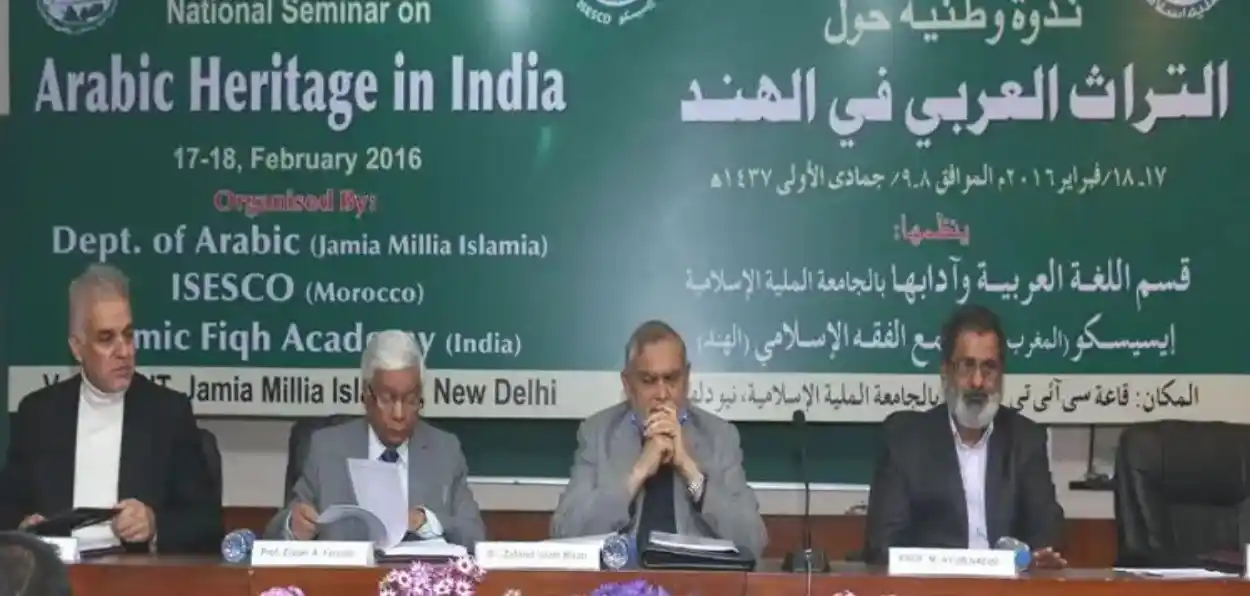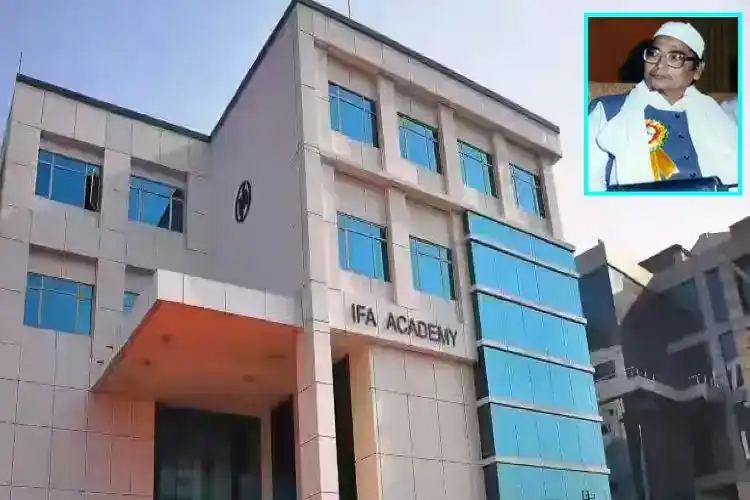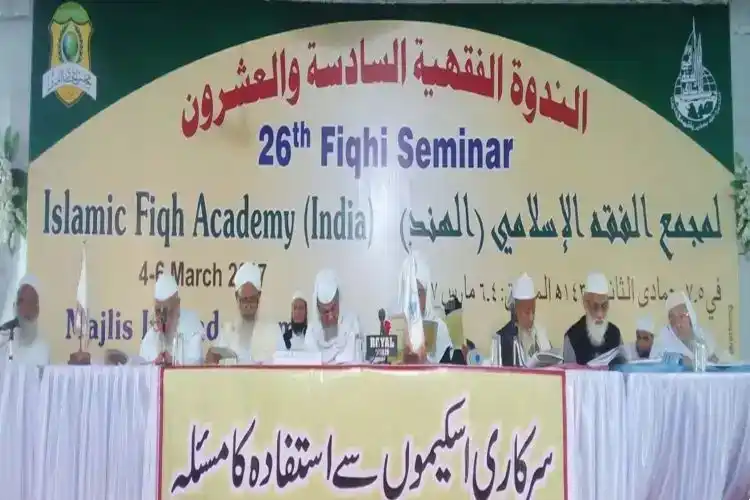
Mansooruddin Faridi/New Delhi
Do you know what is allowed for Muslims in India about which there is no direct reference in Islam’s holy book Quran? Here is the list: Blood donation, Organ Donation, DNA testing, Availing of the government schemes, plastic surgery (for correcting physical defects), women to work, taking an Insurance policy, etc.
These permissions are based on the orders of the Islamic Fiqh (Jurisprudence) Academy, India and these have helped the Indian Muslims address their doubts about new technologies being in sync with the teaching of their Holy book.
This New Delhi-based organization was founded 30 years ago. It has addressed many issues that come up before the Muslims due to the changing time and especially technology and yet there is a long list of tasks at its hands.
Its task is important and daunting given the reality that India is home to the second-largest population of Muslims, and the ever-changing times we live in.
Besides, the problems of non-Islamic countries are different from those of Muslim countries, and the former need to find answers in the light of the Quran, and Sunnah to their problems in a multi-faith and diverse milieu.
 Islamic Fiqh Academy, New Delhi
Islamic Fiqh Academy, New DelhiThe Fiqh Academy came into existence to solve modern problems for Muslims and do jurisprudence research on the developments in the world and inside India.
The Islamic Fiqh Academy (IFA) of India was established in 1989 by Maulana Qazi Mujahidul Islam Qasmi as a premier research institute in Central Asia.
For 32 years, the organization has been actively engaged with scholars from India and abroad in its effort to solve problems arising out of new social changes and the development of science and technology.
The institution claims to guide the Ummah in Shari'a and religion by solving problems related to various topics such as doctrine, worship, social, economic, medical, and modern media. So far the IFA has published some 5000 articles and passed 748 resolutions.
The IFA rulings have also come up with issues such as "medical treatment during Ramadan", "sex education", "mixed education" and "organ donation".
Ahmad Nader Ghasemi, associated with the Islamic Fiqh Academy says that in the last 32 years, the Academy has played a historic role in generating knowledge and research for the promotion and dissemination of Islamic Fiqh and this is quite a success.
He claims many foreign courts have given rulings based on the IFA’s decisions. In the Arab countries, the Arab Emirates, the decisions of the IFA are available in Arabic and Urdu languages. This is a unique and valuable work.
Why the Muslims have to turn to IFA to run their normal lives or be in sync with the rest of the world?
 Scholars and jurists debating an issue at the seminar of IFA
Scholars and jurists debating an issue at the seminar of IFA
Based on the Islamic jurisprudence that draws its principles from the Quran, Sunnah, and Hadith, Muslims need to find out if changing social and technological developments are Islamic enough for them to follow. These problems need collective decisions.
The purpose of setting up the Academy of Fiqh was that some problems cannot be solved by a single scholar or individual, so a network of scholars should be created. All these scholars should be asked about these complex problems and Fiqh Academy India should conduct jurisprudence seminars for them and try to solve difficult problems in it.
The setting up of the IFA was a revolutionary step with far-reaching implications. Its members were selected from eminent scholars and jurists; experts from modern medicine, social sciences, law, psychology, and economics were also associated with it.
They together worked out practical solutions to various religious, social, and socio-political problems faced by Muslims.
The institution has a long list of patrons. Maulana Syed Muntullah Rahmani, Maulana Abul Hasan Ali Hosni Nadvi, Mufti Muhammad Abdul Rahim Lajpuri, Mufti Nizamuddin Azmi, Maulana Syed Nizamuddin, Maulana Abu Al Saud Bakwi, Maulana Muhammad Salem Qasmi, and late Maulana Syed Muhammad Rabi Hosni Nadvi were also present. Names and faces like Maulana Nimatullah Azmi (Muhaddis Dar Uloom Deoband) and the general secretary, renowned jurist Maulana Khalid Saifullah Rahmani, are still attached to it.
Nadir Ahmad Qasmi said that the Fiqh Academy has approved issues like women's rights, commitment to the nation’s integrity, peace and harmony, coexistence, environment, and water conservation, medical issues, and a long list of economic issues.
ALSO READ: Why does India need to encourage Ijtihad?
This work of the academy is important for law reform, society building, and the development of the country, he said.
